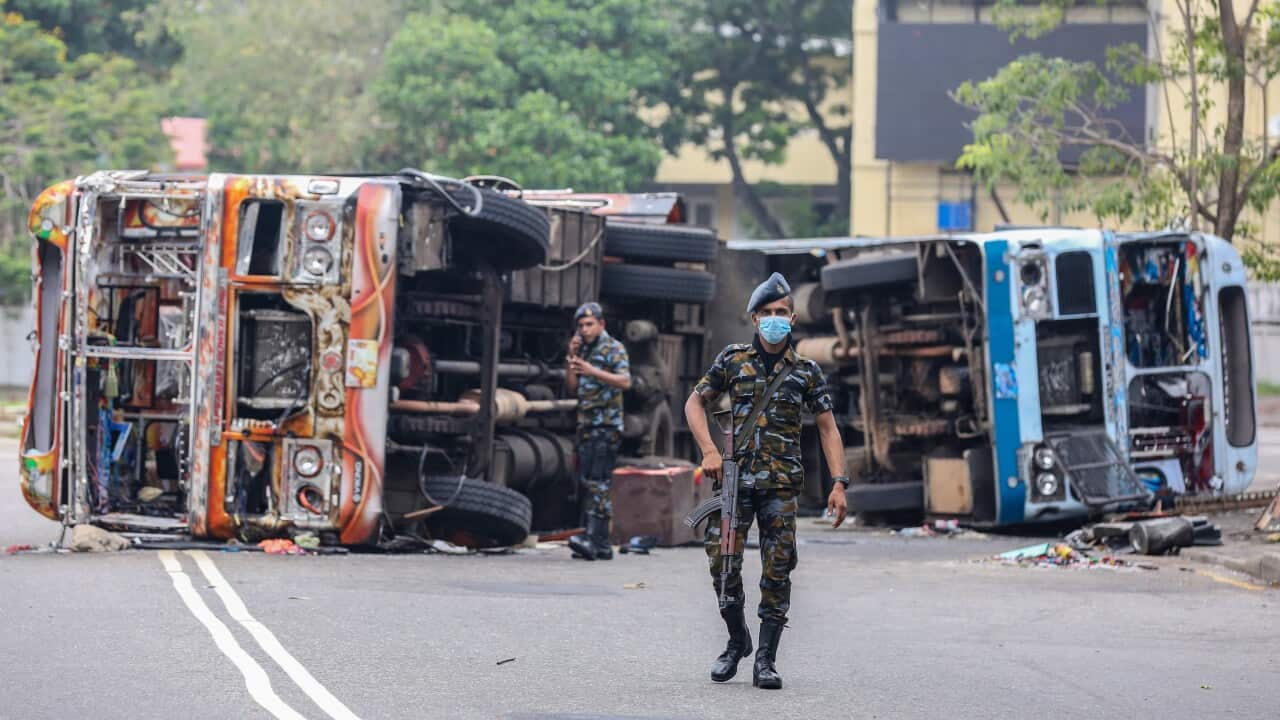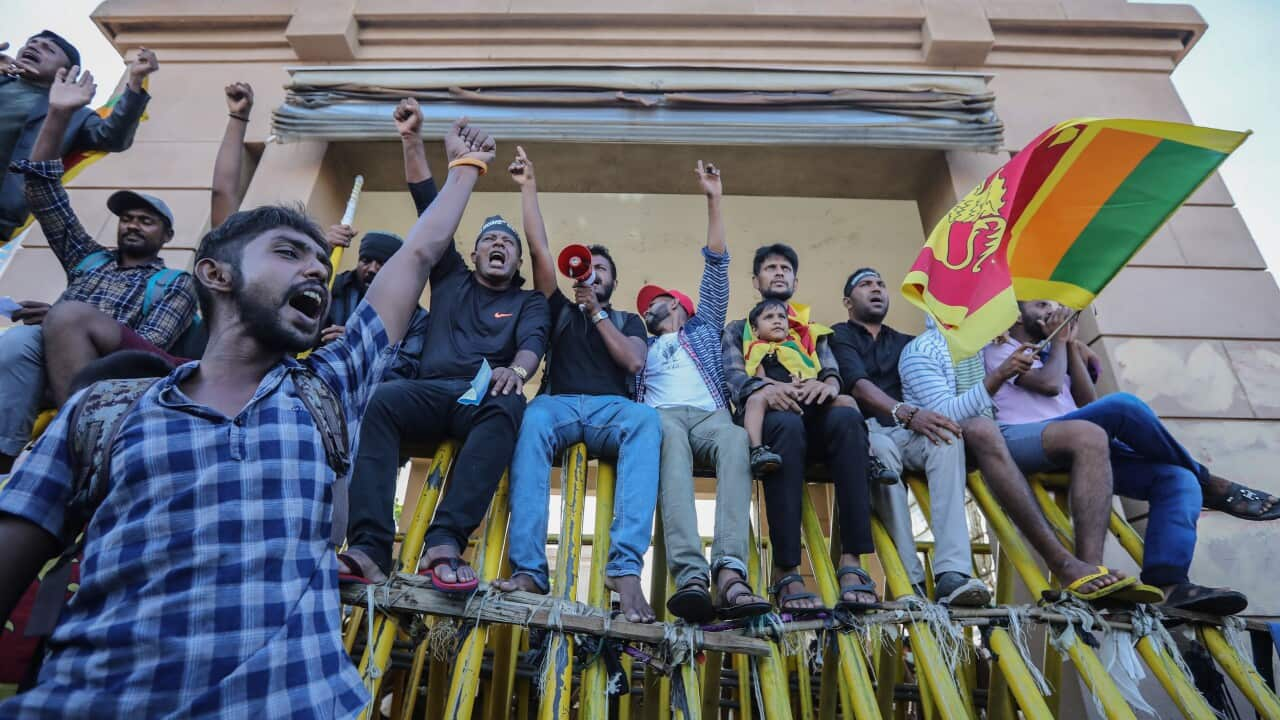The brother of Sri Lanka's president and the country's former finance minister, Basil Rajapaksa, said on Thursday he had resigned from parliament, the second from the influential family to step away from government amid a severe economic crisis.
"From today I will not be involved in any government activities but I cannot and will not step away from politics," Mr Basil said.
"The aim is to allow someone else to be appointed to parliament in my place from the party," he told reporters in Colombo, Sri Lanka's commercial capital.
President Gotabaya Rajapaksa's elder brother, Mahinda Rajapaksa, resigned as prime minister last month after prolonged protests against the economic crisis turned deadly. Mr Mahinda remains a member of parliament.
The three Rajapaksa siblings have been key players in Sri Lankan politics for decades, but are blamed by protesters who have taken to the streets in their thousands in recent months for mishandling the island nation's economy.
Infighting between the brothers has also played a part in Sri Lanka's slide into turmoil but Basil Rajapaksa is likely to retain influence, Reuters has reported.
The country of 22 million people is suffering its worst economic crisis in seven decades, with shortages of fuel, medicines and cooking gas because a severe lack of foreign exchange has stalled imports.
Power cuts
Swathes of Sri Lanka were hit by electricity cuts on Thursday after a power sector union went on strike opposing new government regulations.
About 900 out of around 1,100 engineers of the state-run Ceylon Electricity Board (CEB), Sri Lanka's main power company, went on strike at midnight, stalling operations at eight hydropower plants that generate around 1,000 MW of electricity.
The CEB Engineers' Union is opposed to government plans to amend legislation governing the country's power sector, which includes removing restrictions on competitive bidding for renewable power projects.
Kanchana Wijesekera, Sri Lanka's power minister, said he was open to make changes to the legislation that is due to be presented to parliament, adding that consumers had the right to cheap and uninterrupted electricity supply.
"If the existing CEB act does not need amendments and has the capability to implement renewable energy projects without delay, why did the CEB deprive many who had requested to do so for years?," Mr Wijesekera said in a tweet.
In a bid to stop the CEB Engineers' Union from striking, Mr Gotabaya issued a gazette notification late on Wednesday declaring electricity supply as an essential service. The legal directive makes it mandatory for engineers to report to work.
"President Rajapaksa called the union president late last night and made an appeal not to let the entire grid collapse. So we are working to ensure hospitals and other essential services have power," the union's joint secretary Eranga Kudahewa told Reuters.
"But the strike will continue," he said.
Sri Lanka's new prime minister, Ranil Wickremesinghe, is leading efforts to find a way out of the crisis, with negotiations underway with the International Monetary Fund (IMF) for a loan programme and support from friendly countries, including India and China.
However, with only one seat is parliament, Mr Wickremesinghe is dependent on the ruling Sri Lanka Podujana Peramuna (SLPP) party, which Mr Basil helped rebuild into a political force.
"BR will continue to remain a force in Sri Lankan politics regardless of not being a MP," said Bhavani Fonseka, a senior researcher at the Colombo think-tank Centre for Policy Analysis, referring to Mr Basil by his initials.
"The question is how much influence or control he has over the SLPP," Fonseka said.
The SLPP and its coalition partners have a comfortable majority in the 225-seat legislature, and several sources have previously told Reuters that members of the ruling party remain loyal to Mr Basil.
The veteran politician, who served as finance minister between July, 2021 and April this year, denied he had failed to slow Sri Lanka's descent into financial turmoil.
"I was the person to send the first letter to the IMF after becoming finance minister. It is the work I started that is now being taken forward," he said. "I have no regrets."











